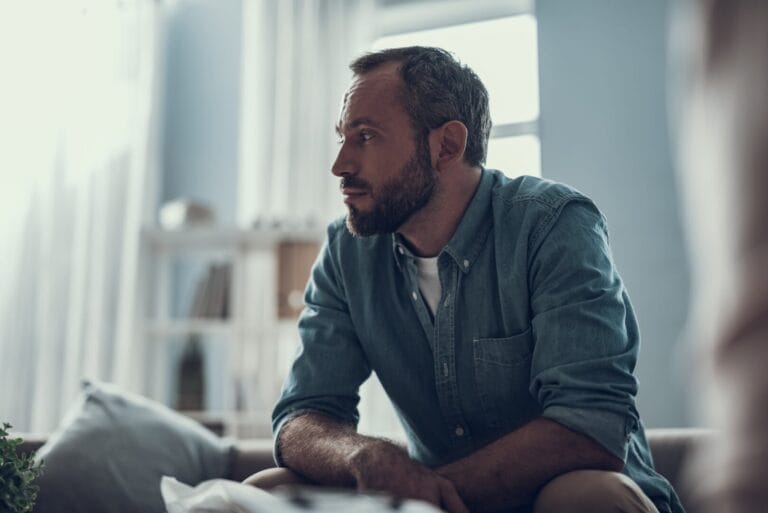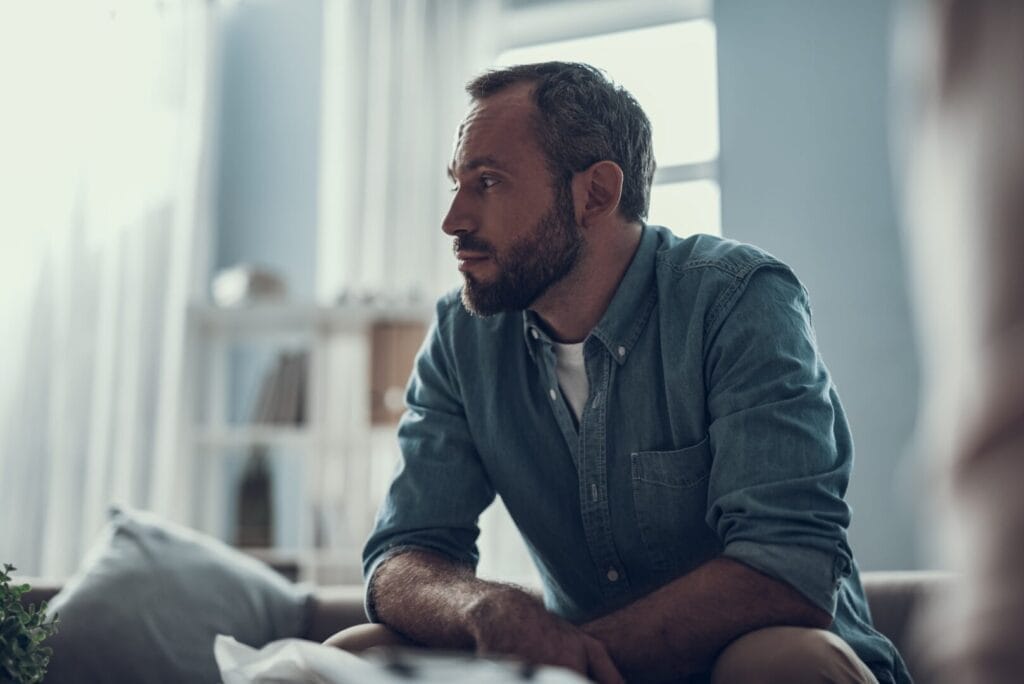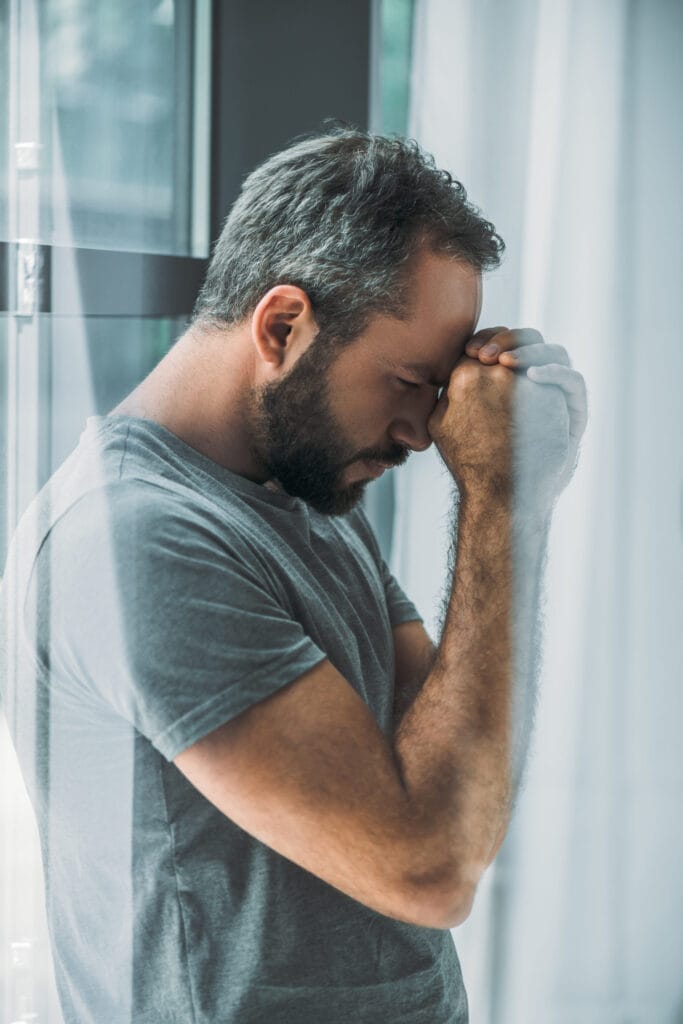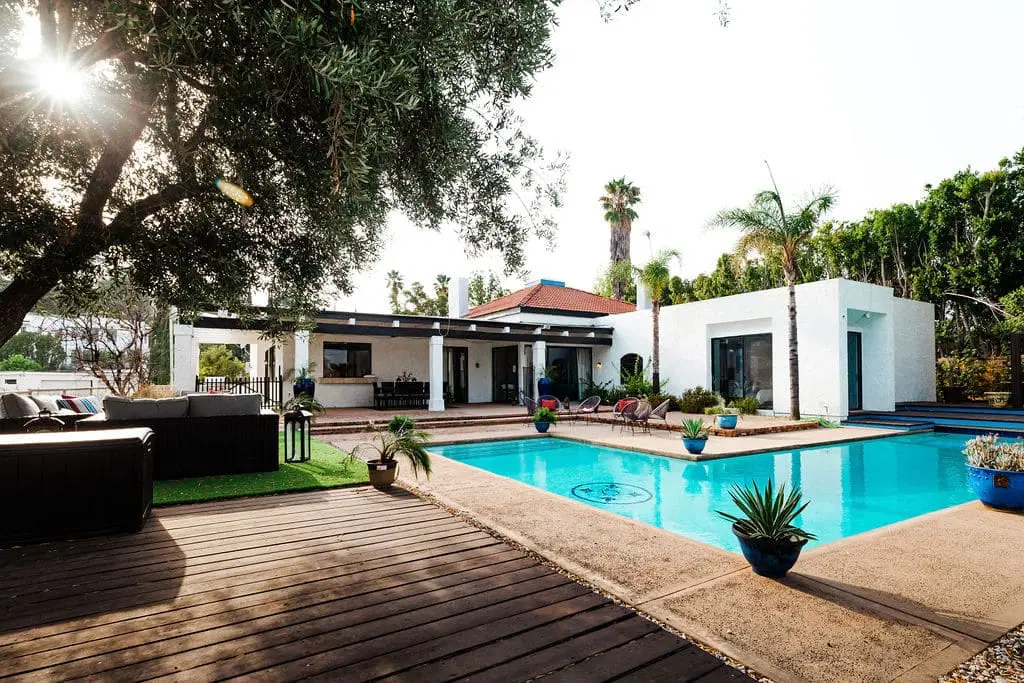Depression Treatment
Comprehensive behavioral health treatment facilities for adults in a safe and comforting atmosphere in Southern California.


Depression Treatment Therapy
Nearly 20 million Americans struggle with depression in any given year. People with depression tend to experience a specific set of symptoms that can seriously interfere with their ability to handle daily activities, work or school responsibilities, and relationships. Luckily, help is available in the form of depression treatment in California.
Mental health treatment centers are able to provide treatment to individuals who need help managing the symptoms of mental disorders such as clinical depression. Much like physical illnesses, mental illnesses such as depression require specialized treatment. If you are experiencing severe symptoms of a depressive disorder and are looking for treatment centers in California, we can help. Here at Montare Behavioral Health, we offer depression treatment in California to help improve our patients’ mental health.
What is Depression?
Depression is a mood disorder that negatively affects how an individual feels, thinks, and acts. Severe depression has an impact not only on an individual but also on that individual’s environment, situations, and interpersonal relationships. Depression is a serious mental health condition. Thus, often, treatment is needed to help manage it.
At Montare Behavioral Health, we know that depression can become so severe that people will require the help of a depression treatment center to help them overcome and manage their symptoms. Our experienced team of clinicians and medical professionals will work to address the root cause of depression through a comprehensive and holistic depression treatment plan at our mental health facility in Southern California.
People with depression experience intense feelings of sadness, helplessness, worthlessness, and hopelessness that can last for days to weeks at a time. In clinical terms, depression is defined as the persistence of five to seven symptoms over a two-week period. If left untreated, depression can have a devastating effect. The symptoms of depression can include the following:
- Frequent irritability
- Persistent sad, anxious, or “empty” mood
- Constantly feeling hopeless or pessimistic
- Feelings of guilt, worthlessness, or helplessness
- Loss of interest or pleasure in previously beloved hobbies and activities
- Decrease in energy levels or frequent fatigue
- Moving or talking more slowly than usual
- Feeling restless or having trouble sitting still
- Difficulty concentrating
- Memory problems
- Issues with decision making
- Difficulty sleeping, early-morning awakening, or oversleeping
- Appetite and weight changes
- Suicidal ideation (thoughts of suicide) or suicide attempts
- Body pain or digestive issues with no clear physical cause

What Causes Depression?
Depression is a complex mental health condition. Furthermore, many people wonder what the cause of this condition is. While there is no consensus on one source of depression, there are many different factors that are thought to contribute to the development of depression or a co-occurring depressive disorder.
The many factors that can contribute to depression include the following:
- Genetics
- Life events
- Personality traits
- Brain chemistry
- History of abuse or neglect in childhood
- Stressful life events
- Hormonal imbalances
Further, depression is also more common in people who have certain chronic illnesses such as heart disease or cancer. The life-altering nature of these conditions can produce feelings of depression that require depression treatment to overcome. Depression in men vs in women can act differently and have different causes as well. Whatever the cause of depression is for a particular person, depression treatment in California is available to provide relief.
Begin Healing at Our Anxiety Treatment Centers in California
Seeking mental health treatment is beneficial for people who suffer from anxiety disorders. Luckily, Montare Behavioral Health offers multiple anxiety treatment centers throughout Southern California.
We offer inpatient or residential treatment along with outpatient treatment for all types of anxiety disorders. We also offer medication management services for clients with mental illnesses that require them to take prescription medications.
By providing clients with the treatment that they need, we help them restore control over their lives. Thus, if you suffer from anxiety or any other type of mental illness for that matter, you should call us today or contact us online.
About Depression
Depression can be devastating and interfere with one’s ability to enjoy daily life. An estimated 7% of the United States has suffered from at least one depressive episode in the past year. However, it is important to remember that depression is treatable. People can’t just snap out of depression or expect it just to go away though. People who suffer from depression must be treated with therapy, medication, and/or a combination of both.
Depression is not a one size fits all mental health disorder. There are several types of depression that can affect a person.
Most forms of depression share similar symptoms. However, they vary in how and why they develop. The most common form of depression is Major Depressive Disorder (Major Depression), which can be so severe that it requires depression treatment. The most common depressive disorders are as follows:

Montare Behavioral Health
Tour Our Facilities



What is the Most Effective Way to Treat Depression?
No two individuals with mental disorders are the same. This is true for individuals with anxiety disorders, mood disorders, depressive disorders, or any type of mental health disorder. Therefore, treatment options for mental illnesses must be individualized for each patient suffering from a mental health disorder.
The following therapeutic interventions available at treatment centers in California may be included in your treatment plan for clinical depression:
- Individual Psychotherapy: Talk therapy is extremely helpful for treating mental illnesses and is often included in depression treatment. This is the most common type of therapy offered by mental health treatment centers.
- Group Therapy: During group therapy, patients are gathered together to allow patients with similar issues to talk to each other in a safe and constructive setting. Group therapy sessions also provide patients with the knowledge that they are not alone in their depression treatment program.
- Family Therapy: Family programs are helpful for patients who struggle to build and maintain healthy relationships with their families. Patients suffering from depression and their families can also learn more about depression in these therapy sessions.
- Cognitive Behavioral Therapy (CBT): Treatment centers offer this type of therapy because it is highly effective at helping patients with major depression to think more positively. During sessions, a therapist aids the patient in depression treatment by identifying and exploring painful or uncomfortable feelings that contribute to their depression symptoms.
- Dialectical Behavior Therapy (DBT): DBT is highly recommended for patients with severe depression and co-occurring behavioral issues. This type of therapy helps those in depression treatment to make better choices in their everyday life.
Therapy is a cornerstone of effective depression treatment programs. Other therapies such as interpersonal therapy, art therapy, and music therapy are utilized by treatment centers in California. These methods of treatment are evidence-based and are also featured in programs at anxiety treatment centers.
Types of
Depression
Major Depressive Disorder (MDD)
MDD affects over 16 million Americans each year. Additionally, major depressive disorder is the main disorder under which the Diagnostic and Statistical Manual of Mental Health Disorders (DSM-5) lists all other forms of depressive disorders.
It is characterized by persistent feelings of sadness, hopelessness, despair, fatigue, weight gain or loss, change in sleeping habits, loss of interest in usual activities or hobbies, slowed-down motor movements, and suicidal thoughts and attempts. For an official diagnosis of major depressive disorder, these symptoms must persist for longer than 2 weeks. People who experience major depression tend to have multiple depressive episodes throughout their lifetime.
Dysthymia
Dysthymia is characterized as a form of major depression that lasts two or more years. Symptoms of dysthymia may be milder than major depression, but they are more chronic. Due to the duration of depressive episodes in people with dysthymia, depression treatment is highly recommended.
People living with dysthymia have a low or gloomy mood that persists most days and lasts most of the day. If they are symptom-free, it usually lasts no longer than two months. This condition can exist on its own or as a type of co-occurring depression along with another mental illness.
Persistent Depressive Disorder
If you experience symptoms of depression that last for two years or more, it’s also known as a persistent depressive disorder. This term has also been used in place of dysthymia (persistent low-grade depression) and chronic major depression. Symptoms of persistent depressive disorder can include major shifts in appetite or sleep patterns, lack of energy, low self-esteem, and issues concentrating or making decisions.
This type of depressive disorder is considered to be milder than major depressive disorders. However, depression is a serious health condition regardless of severity. The ability that depressive disorders have to affect a person’s mental health and physical health causes people with such disorders to require depression treatment by a mental health professional at a mental health treatment center.
Postpartum Depression
The birth of a baby brings on many different emotions that can range from excitement and joy to fear and anxiety. It can also trigger an unexpected condition like depression.
More than 3 million new mothers will be affected by postpartum depression each year. The majority of new moms experience postpartum “baby blues” after giving birth. Common symptoms that affect the mental health of new mothers include mood swings, crying spells, anxiety, and problems sleeping.
Over 85 percent of new mothers feel some sadness after their babies are born, but up to 16 percent of new mothers experience enough sadness to be diagnosed as a type of depression. Postpartum depression is characterized by feelings of extreme sadness, anxiety, fatigue, loneliness, fears over hurting the baby, and a feeling of disconnection from the baby. It typically occurs within weeks to months after having a child but can also develop within a year after a woman gives birth.
Postpartum depression can be serious enough to require depression treatment when it presents a risk to the baby or the mother. A type of postpartum depression called postpartum psychosis can be potentially deadly to the mother or the baby. This is because one of the symptoms of this type of postpartum depression is thoughts of violence against oneself or one’s child. Luckily, a treatment center can provide relief and restore balance to a mother’s mental health.
Psychotic Depression
About 20 percent of people with depression have depressive episodes that are severe enough to cause them to develop psychotic symptoms. Psychotic depression usually occurs when psychosis is present, along with a co-occurring depressive disorder. Psychosis is a mental state characterized by disorganized thinking or behavior, false beliefs, delusions, false sights or sounds, and hallucinations.
According to the National Institute of Mental Health, a person who is psychotic is out of touch with reality. That person may hear voices or have strange and illogical ideas.
An example of a delusion or form of psychosis caused by psychotic depression is if a person believes that others can hear his or her thoughts. Another example would be if a person believed that strangers were out to harm him or her. These serious psychotic depression symptoms make attending a depression treatment in California potentially life-saving.
People suffering from psychotic depression may get angry without reason. Some also spend a lot of their time alone or in bed, sleeping most of the day and staying awake at night. Psychotic depression can even lead to poor hygiene and self-neglect, like not bathing or changing their clothes. People that suffer from psychotic depression may be hard to talk to or barely speak, and when they do speak, the things that they say do not make sense.
Premenstrual Dysmorphic Disorder
Premenstrual dysphoric disorder or PMDD is a type of depression that affects women during the second half of their menstrual cycle. PMDD is characterized by extreme sadness, hopelessness, moodiness, anxiety, tension, irritability, and/or anger. Symptoms include depression, anxiety, and mood swings. This condition can exist by itself or be accompanied by co-occurring depression.
Unlike premenstrual syndrome, or PMS, which affects up to 85 percent of women and has milder symptoms, PMDD is more severe and affects about 5 percent of women. Other factors that may contribute to women suffering from premenstrual dysphoric disorder are thyroid disorders include being overweight, having a mother with a history of this condition, and lack of exercise.
The majority of women with PMDD also have Seasonal Affective Disorder (SAD), which further affects their mental health. Unfortunately, this can compound symptoms of depression, especially during particular seasons. However, treatment centers can provide relief for women who suffer from these serious conditions.
Seasonal Affective Disorder
Seasonal affective disorder is a type of depression that is related to changes in seasons. SAD usually starts and ends at about the same time every year, draining your energy and affecting your mood. Seasonal Affective Disorder, or SAD, usually starts in early winter and lifts in spring. Additionally, about 4 to 6 percent of people in the US are estimated to have this type of depression.
SAD is characterized by symptoms of sadness, anxiety, irritability, daytime fatigue, and weight gain. SAD usually occurs in winter climates, due to the lack of natural sunlight. Less commonly, people who experience the opposite pattern of that of SAD experience depression symptoms that start in spring or summer. In both cases though, depression symptoms start out mild, but become more severe as the season progresses.
Some signs and symptoms of seasonal affective disorder may include feeling depressed for most of the day to almost every day, losing interest in activities, suffering from sleep problems, low energy, and difficulty concentrating, and feeling hopeless, worthless, or guilty. Some symptoms that are specific to winter-onset SAD, sometimes referred to as “winter depression” are oversleeping, changes in appetite, weight gain, and fatigue or low energy. People going through summer-onset seasonal affective disorder, or “summer depression,” can experience symptoms like insomnia, poor appetite, weight loss, and agitation or anxiety.
Mood Disorders
Depression can be devastating and interfere with one’s ability to enjoy daily life. An estimated 7% of the United States has suffered from at least one depressive episode in the past year.
Depression is caused by a variety of factors. These include genetic, biological, environmental, and psychological factors. It is important to remember that depression is treatable. People can’t just snap out of depression or expect it just to go away.
People who suffer from depression must be treated with therapy, medication, and/or a combination of both at treatment centers. The residential depression treatment program at Montare Behavioral Health utilizes individualized treatment plans in a therapeutic environment in order to treat depression.
Depression treatment plans at our treatment center in California include psychotherapy, medication, exercise, neurofeedback, light therapy, brain stimulation, and holistic treatments. Oftentimes the sooner one enrolls in depression treatment, the better off they will be.
For those individuals who are experiencing depression, seeking help for depression treatment in California can be beneficial. At Montare Behavioral Health here in California, we treat a wide variety of depression disorders and can help you restore a sense of control over your life.
Treatment Programs Available to Treat Depression
If you are suffering from a mental health condition or co-occurring depression, a combination of the aforementioned therapies can help provide you with the tools you need to manage your mental health conditions. Depression treatment centers offer programs designed to treat mental health disorders such as depressive disorders.
These programs offer therapy for mental health and customized support for the individual needs of patients suffering from mental health crises. While depression treatment centers offer programs for those with depression, these programs can also benefit individuals with co-occurring mental health disorders.
Inpatient Facility for Depression
Depression inpatient treatment programs, also known as depression residential treatment programs, treat major depression and any co-occurring mental health issue. These programs require that a patient stays in a depression treatment center day and night while receiving treatment for his or her depression and any co-occurring mental health issue.
During the day, patients participating in an inpatient program at our California depression treatment center engage in different therapy sessions. These can include group therapy, family therapy, or individual therapy. The goal of inpatient mental health treatment is to provide patients with access to mental health care around the clock.
Residential treatment programs can last anywhere from 3 to 9 months. The length of an inpatient or residential depression treatment program depends on many factors, including the severity of a patient’s depression or the presence of a co-occurring mental health disorder such as an anxiety disorder.
Outpatient Depression Treatment
Outpatient treatment programs are similar to inpatient treatment programs. During the day patients are able to participate in therapy, group sessions, and holistic treatments. However, patients attending an outpatient program at a depression treatment center are able to return home after treatment.
There are three levels of outpatient care. These all provide varying levels of treatment according to how much time a patient needs to spend in therapy. The different levels of outpatient care available at a depression treatment center include the following:
Traditional Outpatient Depression Treamtment
Outpatient programs (OPs), similar to inpatient treatment, are used to treat major depression or any co-occurring mental health problems. During a traditional outpatient program, patients attend a few hours of outpatient therapy for depression a day, usually in the morning or afternoon. The length of the outpatient program varies depending on the severity of depression and other problems a patient is facing.
Intensive Outpatient Depression Treatment
Intensive outpatient programs (IOPs) are designed for people who need additional outpatient care to manage their depression symptoms. IOP patients will typically see a therapist three times a week while also attending local support groups, individual therapy sessions, and educational programs. Treatment time for IOP treatment is typically four hours each day with some patients choosing to attend close to 12 hours each weekday.
Partial Hospitalization Program
In addition to traditional outpatient treatment and IOPs, some treatment centers offer partial hospitalization program (PHP) treatment. PHPs for treating depression resemble traditional outpatient programs in many ways but have slightly different protocols. These programs require patients to remain in their treatment centers for the majority of the day, during the week, to receive depression treatment. Similar to the other types of outpatient depression treatment, PHP patients return home at night, giving them a chance to practice the skills they learned in treatment.
Depression Treatment at Montare Behavioral Health
The residential depression treatment in California at Montare Behavioral Health utilizes individualized treatment plans in a therapeutic environment in order to treat depression. Treatment options for depression include neurofeedback, psychotherapy, medication, exercise, light therapy, brain stimulation, and holistic treatments.
Often, the sooner one enrolls in depression treatment, the better off that person will be. For those individuals who are experiencing depression, seeking help through depression treatment can be beneficial.
If you’re looking for depression treatment centers or anxiety treatment centers in California, the depression treatment offered here at Montare Behavioral Health is designed to treat depression and the mental health issues that it comes with.
Not only do we treat a wide variety of depression disorders, but we can also help you restore a sense of control to your life, and provide ongoing support after you complete treatment. Additionally, we offer treatment services for various disorders such as bipolar disorder or generalized anxiety disorder.
If you are looking for outpatient or inpatient depression treatment in California contact us today to learn more about how we can help you overcome depression or any other co-occurring disorders you are dealing with.
References










